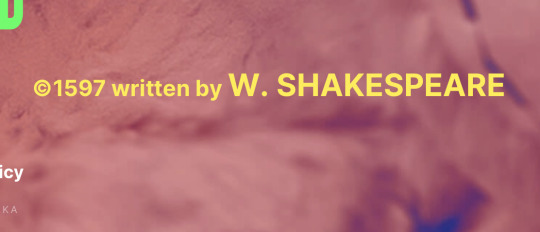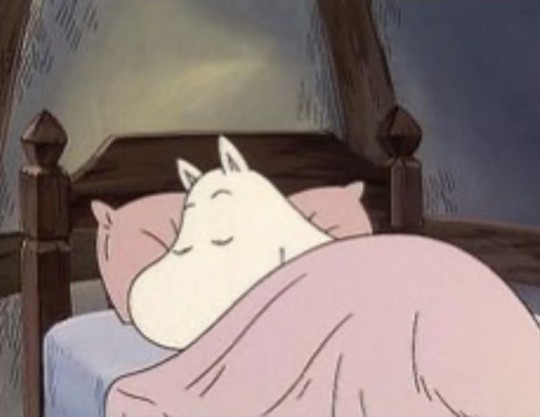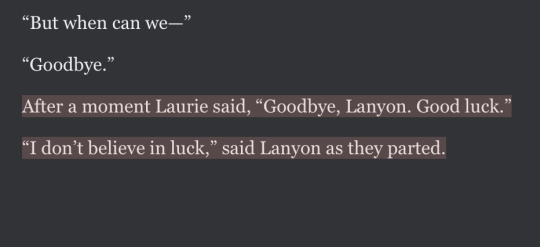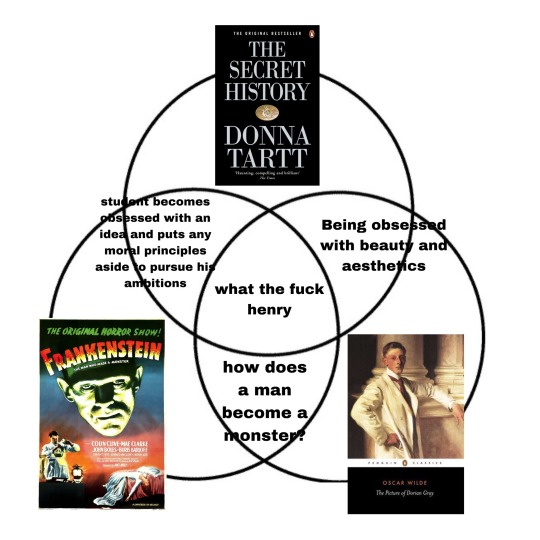Text
Shakespeare: I will create two teenage characters who are explicitly proto-postmodern examinations of the nature of character and fate within fictional narrative. I am their creator and - like their parents within the narrative - I exercise complete control over their fates, no matter how much they struggle against it. They are born like Athena from my mind and doomed to die by my pen, by my complicity in the narrative negligence of them, by my own actions and wishes-
Actor: cool, what's their names?
Shakespeare, father of twins named Judith and Hamnet: uhh…. Juliet and Hamlet.
481 notes
·
View notes
Text
tired of richard did cocaine in a parking lot this richard did cocaine in a burger king that. this was NOT richard's peak character moment. his peak moment was sleeping with some girl at some party then getting knocked out by her boyfriend the next day, waking up face down in the snow, limping back to his dorm, and then waking up late for class thinking 'why didn't my friends come get me?'. BECAUSE THEY'RE FAKE AS FUCK BOJO. this all happened within like one paragraph btw.
562 notes
·
View notes
Text

what do you learn about copyright on the FIRST DAY of shakespeare class?
6 notes
·
View notes
Text
whenever the Shakespeare play opens with a dude with a mustache and an acoustic guitar you know it’s gonna either be the worst thing you’ve ever seen or an incarnation of the spirit of Shakespeare himself
11 notes
·
View notes
Text
Had the privilege of seeing this absolutely stellar lesbian Pericles in Union Square. 10/0. Loved it.
The thing about Pericles is that it’s kind of a wild hot mess, a fair percentage of which was probably written by some guy named George Wilkins (his delightful Wikipedia page describes him as an innkeeper who was “also apparently involved in criminal activities”). But as Avengers: Endgame has more recently demonstrated to the world, being a wild hot mess doesn’t stop you from being popular — and the story of the adventures of Pericles, Prince of Tyre, despite being pretty scattershot, was and is popular. It’s early Jacobean England’s hottest club! It’s got everything. Incest, shipwrecks, jousting, marriage, comic relief from possibly libertarian fishermen, whorehouses, miracles, pirates.
7 notes
·
View notes
Text
Nikolai Gogol, my beloved.
how i sleep knowing some old russian man in the 19th century mentioned all my angst in his books and i am not universally alone with these feelings

3K notes
·
View notes
Text
Literary references in The Charioteer (by chapter). WIP
Chapter 1
St George and the Dragon (unspecific)
Chapter 2
Julius Caesar, William Shakespeare
Hamlet, William Shakespeare
The Character of the Happy Warrior, William Wordsworth
Sir Galahad, Alfred Tennyson
David and Jonathan, Samuel 1 and 2, The Bible
The Phaedrus, Plato
Homer (unspecific)
Chapter 3
An Essay on Criticism, Alexander Pope (misquoted as Shakespeare)
The Hippopotamus, T. S. Eliot
Chapter 4
Paradise Lost, John Milton
The Phaedrus, Plato
Chapter 5
Robert Herrick (unspecific)
The Phaedrus, Plato
The Phaedo, Plato
The World, Henry Vaughan
Chapter 6
Treasure Island, Robert Louis Stevenson
The Odyssey, Homer
William Shakespeare (unspecific)
Seven Pillars of Wisdom, T. E. Lawrence
Brave New World, Aldous Huxley
The Country of the Blind, H. G. Wells
Chapter 7
-
Chapter 8
Fyodor Dostoyevsky (unspecific)
Plato (unspecific)
Sappho (unspecific)
Christopher Marlowe (unspecific)
William Shakespeare (unspecific)
Cain and Abel, Genesis, The Bible
Shakespeare's sonnets, William Shakespeare
David and Jonathan, Samuel 1 and 2, The Bible
Chapter 9
The Phaedrus, Plato
Le Morte d'Arthur, Thomas Malory
Chapter 10
-
Chapter 11
-
Chapter 12
The Phaedrus, Plato
Franz Kafka (unspecific)
Songs of Praise, hymnal
Hymns Ancient and Modern, hymnal
The Oxford Book of French Verse
Hamlet, William Shakespeare
Child Maurice, ballad
Chapter 13
The Coral Island, R. M. Ballantyne
Hamlet, William Shakespeare
The Phaedrus, Plato
Chapter 14
"The chestnut casts his flambeaux", A. E. Housman
Chapter 15
East Africa Pilot
The Phaedrus, Plato
Chapter 16
The Phaedrus, Plato
21 notes
·
View notes
Text
I’m not used to people having partners because my friends are whores (affectionate) so today we all got together for catchup dinner & my one friend mentioned that he had a girlfriend & my immediate impulse was to say “Oh, what kind!” like you do when someone gets a dog.
#apparently not the correct response#this is not related to Shakespeare it’s just funny#personal#funny post#perhaps
2 notes
·
View notes
Text
me personally I like to imagine Claudius killed his brother in the first place because he came across a group of witches who told him that he’d be king someday and he took it from there. I also like to imagine that there’s just a coven of witches that hangs around Europe telling unstable and violent men in positions of power that they’re soon to be king just to see what happens. they’re pot stirrers
194 notes
·
View notes
Text
Julius Caesar, Hamlet, Much Ado About Nothing
My toxic trait is that I judge people by their top three Shakespeare plays - just like folks who are into the horoscope judge you based on your sun, moon and rising signs.
Btw mine are Macbeth, Richard II and The Tempest
2K notes
·
View notes
Text

Freddie as a guardian angel!
He’s playing his music from a magical recorder that reaches whoever needs it ❤️
For mrbadguymercury
35K notes
·
View notes
Text
Okay this is a very valid take, thanks for engaging in conversation about it. I agree to a point. I am also very tired of finding bad playlists.
the secret history is NOT an aesthetic dark academia books that romanticizes whatever the fuck tiktok users think it's romanticizing it's a cautionary tale about the effects of ancient greek on the brain
289 notes
·
View notes
Text
Yeah but you do realize that the entire central plot of the book revolves around aesthetic, right??? Without the aesthetic, the book doesn’t exist. Richard goes to Hamden because he likes the pictures on the brochure. His fatal flaw is a morbid longing for the picturesque at all costs. It is fundamentally ABOUT how romanticizing an aesthetic can have disastrous consequences. It very much does romanticize the Greek class’s lifestyle — it’s told through Richard’s eyes and he is so enthralled by them, he literally murders his friend to stay close to them. You all need to stop projecting a moral value & some kind of overarching message onto a book about immoral people. It’s a bad look.
the secret history is NOT an aesthetic dark academia books that romanticizes whatever the fuck tiktok users think it's romanticizing it's a cautionary tale about the effects of ancient greek on the brain
289 notes
·
View notes
Text


do you think about this every day, or are you normal?
#ralph loves that boy so much it made him believe in luck#imagine kissing for the first time not knowing its only the second chapter of your story and thinking it's a goodbye?!??!?!#and then you get him back?!?!?!?!?#the difference between their first kiss and their first time sleeping together#the charioteer#mary renault#this book#her mind
17 notes
·
View notes
Text
Yes! agree agree agree. Questionable take from OP even though I am generally the first to emphasize that we cannot conflate authorial intent with character's thoughts and feelings! (example, shakespeare will often have a character say something and then tacitly disagree with that character's statement by contradicting it later in the narrative. But people often ignore that and act like whatever the quote was is just Shakespeare's opinion. Example, people constantly quote the "all the world's a stage" speech from As You Like It as if it was shakespeare himself speaking, but he wrote that in character—that's Jaques speaking, not Shakespeare—and it's not an accident at all that the speech ends with Jaques saying that old age is "second childishness and mere oblivion" and then IMMEDIATELY the elderly and very wise Adam enters with Orlando — Shakespeare lets Jaques talk his shit but then immediately reminds the audience not to take it too seriously by showing Adam, whose very existence and nature disproves Jaques words. But anyway, sorry for the tangent.)
The interview you're thinking of is this 1992 Charlie Rose feature: https://www.youtube.com/watch?v=7oo-wNuP9tU&t=261s — upon being asked what books she likes to read, Tartt pauses to consider, and finally says, "It's terrible to ask me this question because I just read the same books over and over again ... the first time you're reading a book, you have, I mean, you're discovering along with the writer, you know, it's sort of an inductive process, and you don't know quite where he's taking you, and it's very wonderful, you can understand the process better as a young writer. The way a young writer looks at a book is the way a young architect looks at a building. And you can see better how things are constructed and how they're put together the second time around." (Time stamp: 4:16).
It's also weird of OP to ascribe definitive meaning — "These words are satire" — to an interpretive passage which is not really something anyone can ever do in any context except perhaps the author themselves. However, it can be argued that The Secret History is, at its heart, a book that is intrinsically designed to be reread, and it's my belief that Tartt is referencing this fact with this quote from Julien. There are hundreds of little details that can be picked out and dissected once the reader knows what they're looking for—Tartt writes the story in the voice of someone who already knows it, allowing the reader to have a different experience each time they return to it. As someone smarter than me has previously said (don't remember who, sorry!) the first time time you read TSH, you're Richard in college meeting these characters and experiencing everything for the first time—every time after that, you're Richard in the future, jaded, regretful, and painfully aware of every red flag you missed the first time around. So yeah, sometimes it actually IS better to know one book intimately than a hundred superficially.
OP's point is also just generally confusing to me because first of all, there are so many other Julien quotes you could've picked out to support the idea that Tartt brainwashes you in a way into subscribing to the cult of Julien Morrow. ("Beauty is terror??? Anyone???) And also I don't agree that the general consensus around TSH is that readers automatically think they would've behaved differently than the characters did — I think it's a book that very transparently twists you into hating Bunny and longing to be a part of the Greek class which is sort of the genius of it? And what I think most people like about it? Like yeah, The Secret History IS a cautionary tale ABOUT brainwashing and chasing a morbid longing for the picturesque at all costs, but also, we all already know that. And this specific quote does not apply to that thesis at all.
(PS o.p. this is not personal or intended with disrespect at all, I just disagree with your opinion.)
“It is better to know one book intimately than a hundred superficially” (Tartt, 31).
I am absolutely fascinated by the fame and reverence this quote from the Secret History has achieved. It terrifies me. Let me explain.
Who’s line is this? Oh, yes. Professor Julian Morrow. Julian, in his lecture on how death begets beauty, on how Dionysian madness lends immortality. Julian, who isolates the greek class, buries them in the glories of the past and in their privilege, and submerges them beneath illusions until his students can’t tell right from wrong and real from imagined.
These words are satire. This is NOT a lesson any teacher should impart, and should NOT be beloved and relatable. In one sentence, Donna Tartt summarizes the entire cautionary tale of the novel: the selective, warped, and obsessive view on life the greek class held, born from entitlement and cultivated by Julian, led the students to tear themselves to pieces.
What’s more, the way people quote it all the time makes this line all the more haunting. Widespread parroting of Julian’s teachings only reinforces Donna’s themes: human minds are easily manipulatable, it can be hard to think critically about what you are taught and what you read, and that the easy, self-assured conviction belonging to the reader that, “I, personally, would have behaved differently than Henry, Richard, Francis, Camilla, Charles, and Bunny” is nothing but another illusion.
326 notes
·
View notes
Text
have to write a ONE PAGE essay on a mid fucking summer night's dream and i am going to drop out i swear to god
#brevity is not the soul of MY wit#verbosity is actually the soul of wit#shax told me himself#i cannot heave my heart into one page#i am suffering#please#send help#shakespeare#shakespeare shitposting#(imagine my new york accent in your head) IT'S NAT ENOUGH FUCKIN PAGES
3 notes
·
View notes
